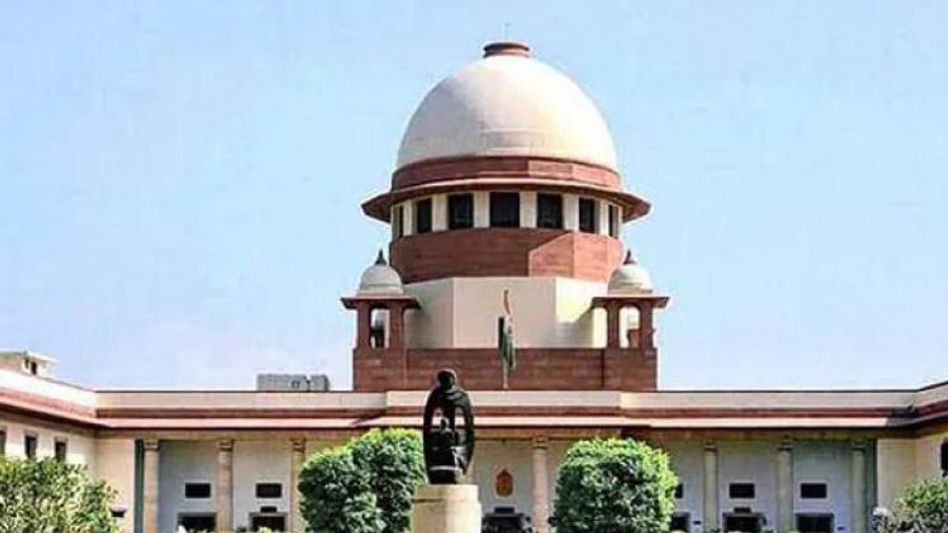Supreme Court seeks centre's reply to petitions on marital rape
The Centre, represented by Solicitor General Tushar Mehta, told the bench headed by Chief Justice D Y Chandrachud that the issue has legal as well as “social implications” and the government would like to file its response to the petitions.
 Supreme Court seeks centre's reply to petitions on marital rape
Supreme Court seeks centre's reply to petitions on marital rapeThe Supreme Court on January 16 sought the Centre’s response to a batch of petitions pertaining to criminalisation of marital rape and the IPC provision which provides protection to a husband against prosecution for forcible sexual intercourse if the wife is an adult.
The Centre, represented by Solicitor General Tushar Mehta, told the bench headed by Chief Justice D Y Chandrachud that the issue has legal as well as “social implications” and the government would like to file its response to the petitions.
“The Union of India shall file a counter affidavit by February 15, 2023. The batch of petitions will be heard on March 21,” ordered the bench, which also comprised Justices PS Narasimha and J B Pardiwala.
The top court, which appointed lawyers Pooja Dhar and Jaikriti Jadeja as nodal counsel, said the parties will have to file their written submissions by March 3 for smooth hearing of the petitions.
One of pleas has been filed in relation to the Delhi High Court’s split verdict of May 11, 2022 on the issue. This appeal has been filed by Khushboo Saifi, one of the petitioners before the Delhi High Court.
However, the two HC judges — Justice Rajiv Shakdher and Justice C Hari Shankar — had concurred for granting a certificate of leave to appeal in the Supreme Court as the matter involved substantial questions of law which required a decision from the top court.
While Justice Shakdher, who headed the division bench, favoured striking down the marital rape exception for being “unconstitutional” and said it would be “tragic if a married woman’s call for justice is not heard even after 162 years” since the enactment of the IPC, Justice Shankar said the exception under the rape law is not “unconstitutional and was based on an intelligible differentia”.
Another plea has been filed by a man against the Karnataka High Court verdict which had paved way for his prosecution for allegedly raping his wife.
The Karnataka High Court had on March 23 last year said exempting a husband from allegation of rape and unnatural sex with his wife runs against Article 14 (equality before law) of the Constitution.
The set of pleas are PILs filed against the IPC provision and have challenged the constitutionality of the marital rape exception under Section 375 IPC (rape) on the ground that it discriminates against married women who are sexually assaulted by their husbands.
Under the exception given in Section 375 of the IPC, sexual intercourse or sexual acts by a man with his wife, the wife not being minor, is not rape.
At the outset of the hearing, senior advocate Siddharth Dave, appearing for the husband in the appeal against the Karnataka High Court judgment, said his matter was different as others are PILs.
“My matter is different. My learned friends are in PILs. I am for a person who is directly affected. This is a live case,” he said.
The solicitor general suggested the cases against the spilt verdict of the Delhi High Court can be allowed to be heard by a third judge of the high court and then the apex court can have a “final view”.
“Second option is that the Supreme Court hear the cases. With the first option, this court will have the benefit of the view of Delhi High Court,” the law officer said. The bench did not seem to concur.
The law officer said the central government had sought the views of states on the issue as “apart from legal ramifications, it also has social implications”.
Senior advocate Indira Jaising, appearing for the wife in the Karnataka matter, urged the bench that her identity be suppressed.
“In the compilation, I will not share my pleadings. I will only share the legal points. There is an application for suppression of identity,” she said.
“The identity of the applicant shall be redacted,” the CJI ordered.
Copyright©2025 Living Media India Limited. For reprint rights: Syndications Today









